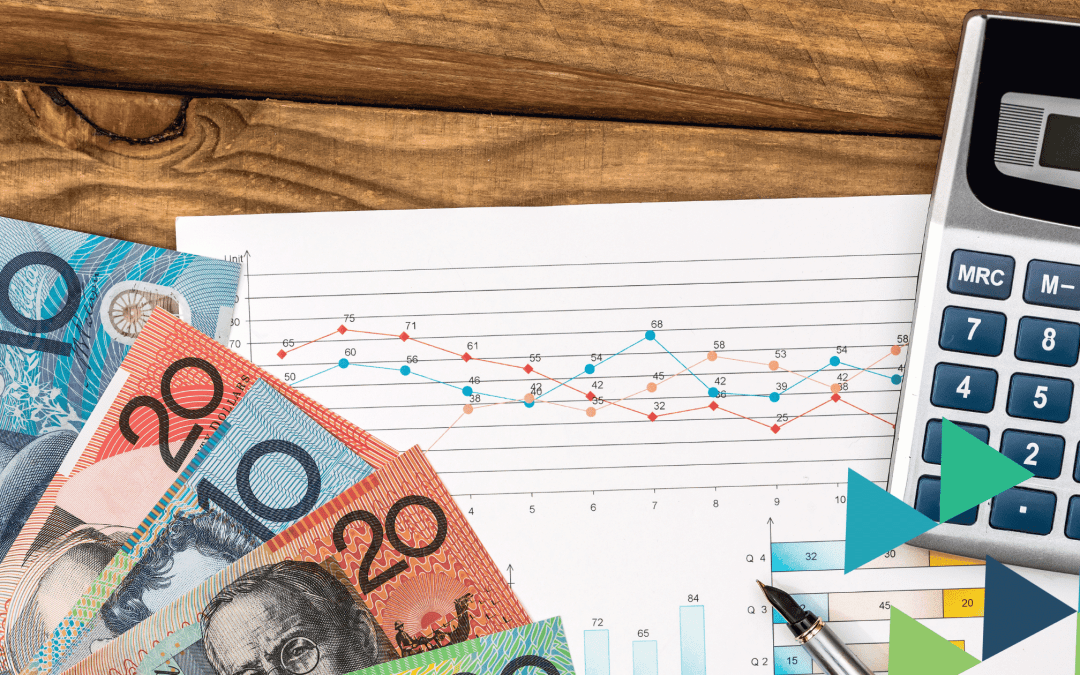TSP Accountant reports this week a noteworthy slowdown in inflation, with the annual figure dropping to its lowest since last February. According to data freshly released by the Australian Bureau of Statistics (ABS), monthly inflation eased to 4.9 per cent over the 12 months leading up to July. This deceleration is primarily attributed to declines in the prices of petrol and fruit and vegetables.
Michelle Marquardt, the Head of Prices Statistics at ABS, highlights that the downward trend in inflation continues from the 5.4 per cent observed in June, as well as the peak of 8.4 per cent witnessed in December of the previous year. July’s inflation rate decelerated due to notable price decreases in automotive fuel (-7.6 per cent) and fruit and vegetables (-5.4 per cent).
Key drivers of the annual increase for July include a 7.3 per cent rise in housing prices and a 5.6 per cent surge in food and non-alcoholic beverages. Ms. Marquardt suggests that the Consumer Price Index (CPI) is often affected by items with volatile price fluctuations such as automotive fuel, fruit and vegetables, and holiday travel. For a clearer perspective on underlying inflation, excluding these volatile items reveals a more modest decline in annual inflation, at 5.8 per cent for July compared to 6.1 per cent in June.

The housing price surge slowed marginally to 7.3 per cent in July from 7.4 per cent in June, with new dwelling prices experiencing a 5.9 per cent annual increase, the lowest since October 2021. However, the ABS points out that rent climbed by 7.6 per cent in July, up from 7.3 per cent the previous month, as the rental market maintained its tight conditions.
Interestingly, electricity prices deviated from the overall trend by rising 6.0 per cent in July, resulting in an annual increase of 15.7 per cent. This figure includes the impact of rebates. Ms. Marquardt explains that the Energy Bill Relief Fund offered rebates ranging from $43.75 to $250 in July, which influenced the reported increase. Excluding these rebates from the figures for July 2023, electricity prices would have indicated a monthly rise of 19.2 per cent.

Food and non-alcoholic beverages experienced a 5.6 per cent increase over the 12 months ending in July, down from the 7.0 per cent rise recorded in June and marking the lowest annual increase since May 2022. Marquardt attributes the ease in food inflation to favorable growing conditions, leading to increased supply. Fruit and vegetable prices, in particular, saw a decline of 5.4 per cent compared to the same period last year.
Anneke Thompson, Chief Economist at CreditorWatch, points out the consistent price uptick in dining out and takeaway food. She indicates that business owners are passing on higher utility and rent costs to patrons. While Australian consumers, especially those aged 65 and above, continue to frequent restaurants and cafes, younger demographics face diminishing savings rates and persistently high interest rates. Thompson predicts ongoing challenges for the food and beverage sector’s margins as customer demand levels off or potentially decreases.
Anticipation now turns to next Tuesday 5th September when the next Reserve Bank’s board meeting and Official Cash Rate announcement will be made. With inflation figures indicating a favorable trend, the Reserve Bank’s decision to maintain interest rates for the third consecutive month holds significant interest. This decision could signal the central bank’s confidence in the current economic trajectory and its commitment to fostering stability amidst positive indicators of inflation easing. As businesses and households alike monitor this decision, the prospects for continued economic recovery and sustainable growth remain in focus.
As always, if you would like to discuss any of the information in this article and how it may impact you and your business, please contact the TSP team on 49 264155 or email ad***@****************om.au
- From Air Fryers to Swimwear: Tax Deductions To Avoid - 04/06/2025
- How TSP Helps Newcastle Businesses with Tax Compliance - 23/05/2025
- Year-end Tax Planning: Opportunities & Risks - 16/05/2025

